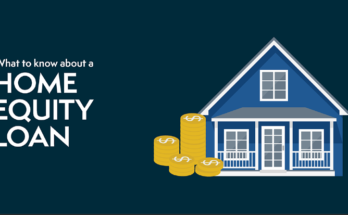Home sellers might have the sense that real estate agents charge an exorbitant fee for their services. In fact, Realtor fees can vary depending on what part of the country you’re in and what type of home you’re selling. To better understand real estate commissions, here’s an overview of the USA Real Estate Realtors Payment Plan.
How do Realtors get paid?
Realtors are typically paid by the home seller, explains Patrick Duffy, who runs his eponymous brokerage firm Duffy Realty in Miami. After interviewing a few agents, home sellers sign a listing agreement with one in which they agree to pay a commission fee, which can be negotiated but is typically about 5 percent to 6 percent of the sales price.
The agent lists the home in the Multiple Listing Service (MLS) with the intention to cooperate with other area brokers in attracting buyers. If another Realtor finds a buyer, the listing broker pays half of the commission to the selling broker.
Trending Now: USA Visa For Medical Treatment – B-2 Visa for U.S. Medical Treatment
“That’s pretty much the meat and potatoes of how it works,” Duffy says.
Real estate agents who work for a broker get a cut of the commission as well, and the amount depends on the arrangement they have with their broker.
“The broker has to set the policy and oversee, monitor, and supervise everything the agent does,” Duffy says, “and if the agent does something fraudulent or unprofessional, the broker gets sued.”
How Much are Realtor fees?
The typical real estate commission fee averages about 5 percent to 6 percent of the home’s sales price. The exact terms of an agent’s commission vary between sales and by which firm they work for.
The brokerage brand RE/MAX, for example, has a split commission set up by which its agents receive 95 percent of the full commission from the sale, and 5 percent goes back to the company. However, RE/MAX agents also pay a monthly fee to the company for use of its name and resources.
A very small portion of Realtors work for salary — the commission model is much more common.
Here’s roughly what you can expect to pay based on what your home is selling for:
USA Real Estate Realtors Payment Plan
| Home sale price | 5% real estate commission |
| $100,000 | $5,000 |
| $250,000 | $12,500 |
| $500,000 | $25,000 |
| $750,000 | $37,500 |
| $1,000,000 | $50,000 |
The structure of a Realtor’s compensation also depends on their role in the sale. In other words, how they’re paid can vary based on whether they were the buyer’s agent or the seller’s agent. Generally, buyers and seller’s agents split the commission at the end of the sale. The fee is taken out of the sale price and then transferred to the agents accordingly.
A dual agency is when one agent represents both the buyer and seller. Laws about whether and how listing agents can sell the properties they’re representing to buyers vary by state.
If working with a buyer’s agent, “you have to sign a buyer’s agency agreement,” explains Tim Noland, a buyer’s agent with Great Mountain Properties in Murphy, North Carolina. “A true buyer’s agent works for the buyer. They protect the buyer’s investment, as opposed to the listing agent, who’s actually working for the seller.”
What do Realtor fees cover?
Probably the biggest benefit to working with a Realtor is access to the MLS, the database Realtors use to see and list properties for sale. Homeowners selling their own properties will have to pay individually to get them listed on the MLS.
Beyond that, a Realtor’s fee covers their time researching properties for you if you’re buying or marketing your home if you’re selling. For buyer’s agents, it also compensates them for showing you properties, and for seller’s agents, for coordinating open houses or prospective buyer visits.
Throughout your real estate transaction, you’re likely to interact a lot with your Realtor. The fee compensates them, too, for answering all your questions and helping you through the process.
When are Realtor fees Paid?
As with most of the other expenses related to homeownership, a Realtor’s fee isn’t paid until the sale closes. On that day you’ll encounter plenty of other costs, too, from taxes to legal fees, so it will blend into the landscape of checks you’re making out.
Generally, a seller will pay the full Realtor commission, and the other closing costs will be shared between the seller and buyer (with the buyer typically responsible for more of the fees associated with their mortgage). Closing costs often come up in purchase negotiations as a bargaining chip for either side.
Are Realtors overpaid?
The median gross income among Realtors in 2019 was $49,700, up from $41,800 the previous year, according to the National Association of Realtors (NAR). Median income represents the middle of the scale: Half of the Realtors made more and half made less.
Though home sellers may feel fleeced having to pay Realtor fees up to 6 percent of their home’s sales price, Duffy argues Realtor fees are not high enough. After all, a lot goes into listing a home, such as:
- Performing a comparative market analysis to establish a competitive price
- Arranging for photoshoots, sometimes getting aerial shots via drone in high definition
- Writing descriptive listing copy to attract interest from other Realtors and potential buyers
- Providing staging guidance
- Showing the property multiple times to prospective buyers
- Hosting open houses on weekends
- Providing yard signage
- Making sure listings are populated on all major property search websites
- Helping the seller review and negotiate buyer offers
When an offer comes in, the listing agent negotiates on behalf of the seller, often presenting one or more counteroffers.
After deducting all the expenses involved, including Realtor fees, Duffy then calculates how much the seller will net.
“The seller wants to know what they will walk out of the closing room with,” Duffy says.
How to Avoid Paying Realtor Fees
In 2019, just 11 percent of home sales were sold by owners without the help of an agent, according to the NAR. What’s more is that for-sale-by-owner homes (FSBOs) typically sell for less money than homes sold by Realtors, NAR states. In many instances, FSBO sellers know the buyers who end up purchasing their homes.
Roughly a quarter of the buyers who did not already know the FSBO sellers contacted them directly, but the jury is out about whether it’s wise to buy a home without a Realtor.
Keep in mind that Realtor fees can be negotiated in some cases, especially if you’re selling a luxury home.
“In certain situations where there’s a competitive environment for a prime or trophy listing, Realtors sometimes will negotiate the commission upfront,” Duffy says. “For example, if I’m listing a $4 million home at 6 percent, that’s a lot of money. In a situation like that there is greater flexibility to negotiate the commission because instead of getting $120,000 if you get $100,000 or $80,000, it’s still a good payday.”
You’ll probably shop around for Realtors before you find one to work with, so if you plan to negotiate their commission, make sure you ask them from the outset what their percentage is, and compare the terms of each person you’re working with. If you still think the fee is too high, talk to them about lowering it.



